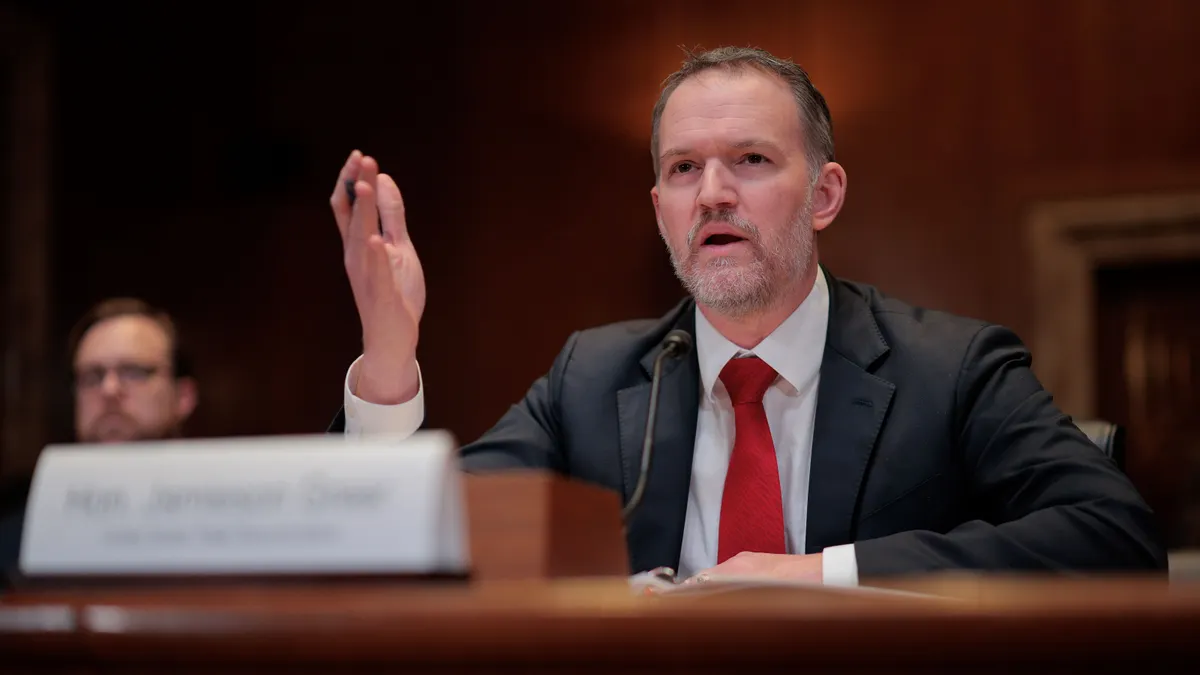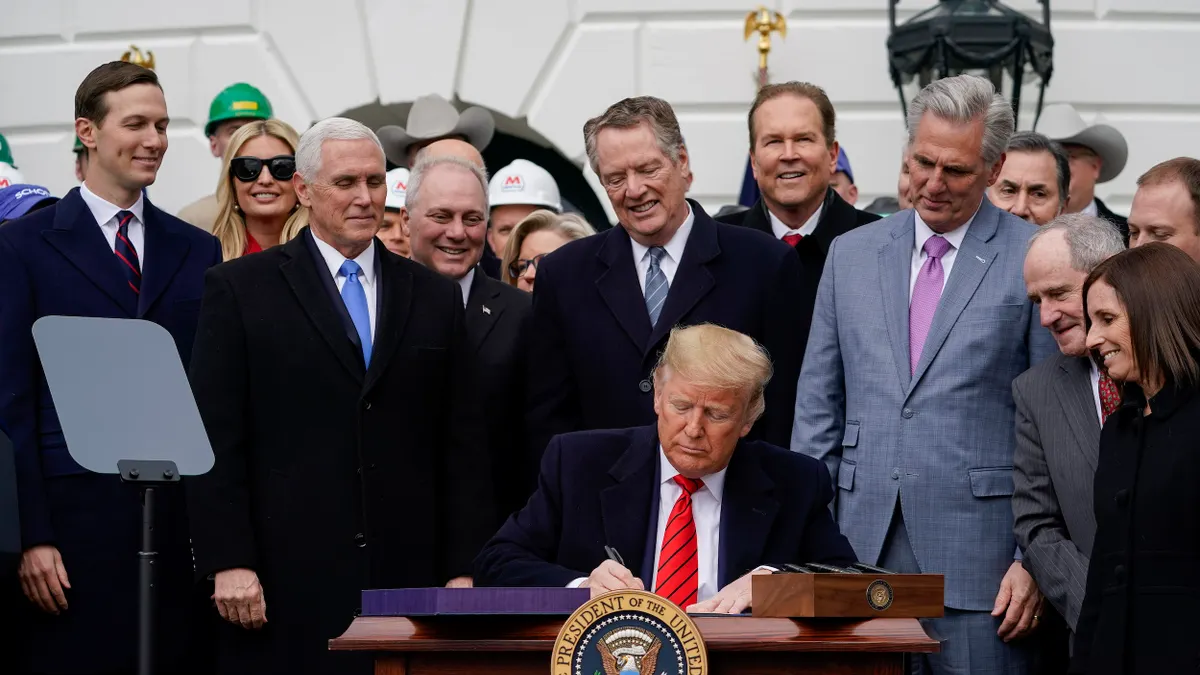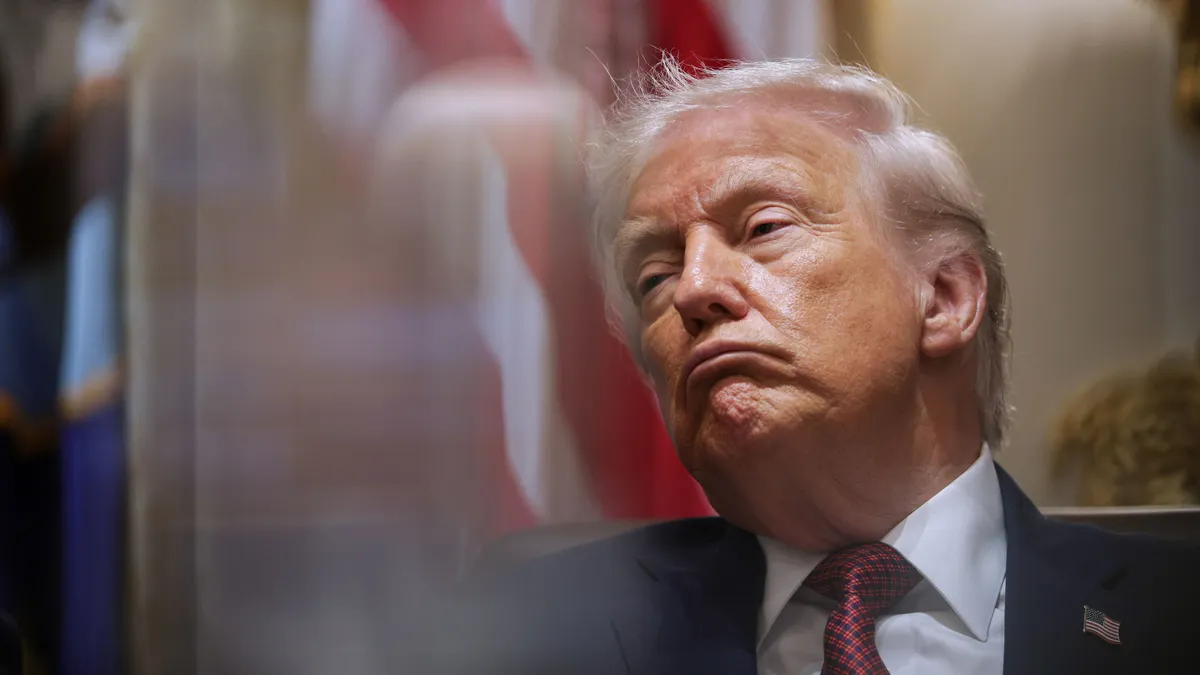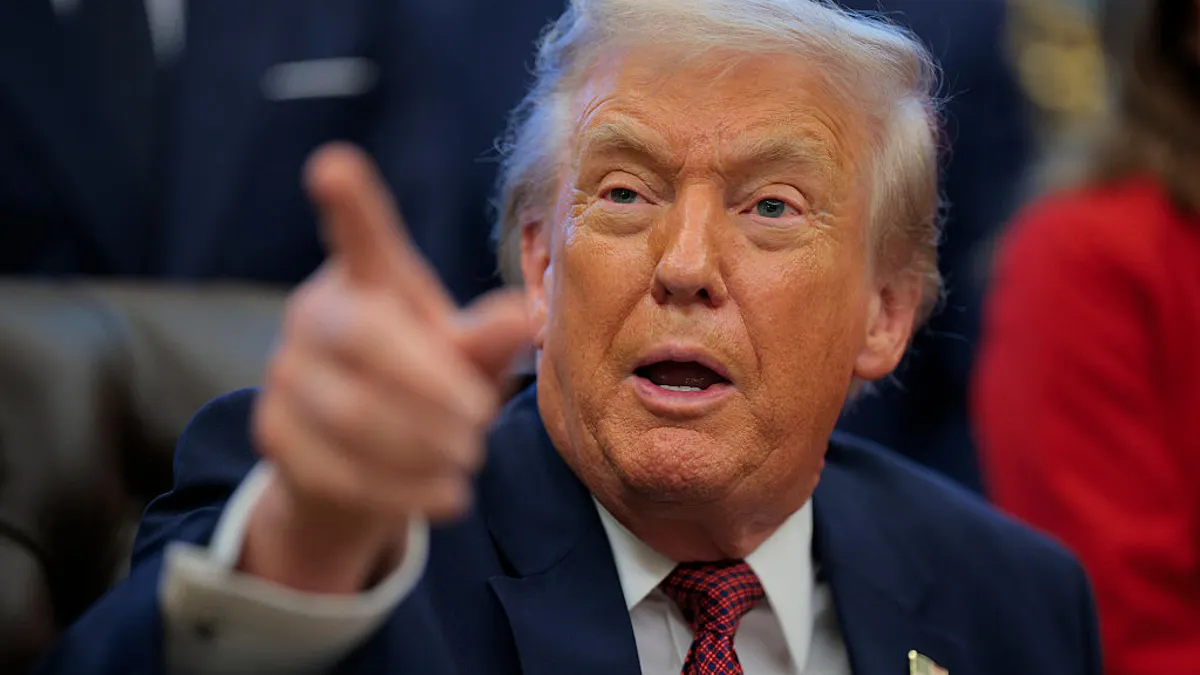President Trump will deliver his second State of the Union address this evening, after a 35-day government shutdown moved the speech from its usual January slot.
He'll cover a wide range of topics, according to a senior administration official who spoke to reporters Friday, from immigration to healthcare to U.S. foreign wars. Supply chain managers should keep their ears open for four specific issues Trump is likely to discuss.
1. Update on trade negotiations with China
Less than a month remains before a 10% tariff on $200 billion in Chinese imports could turn into a 25% tariff. The official said Trump will have some news to share regarding trade negotiations.
Chinese Vice Premier Liu He and U.S. Trade Representative Robert Lighthizer met for trade talks last week. Trump himself met with the Vice Premier briefly Thursday and spoke to the press afterward, revealing that China had agreed to purchase more U.S. soybeans, but he offered no further details.
Lighthizer and Treasury Secretary Steve Mnuchin will head to China for further negotiations this month. "At this point, it’s impossible for me to predict success, but we are in a place that, if things work, it could happen,” said Lighthizer Thursday.
Trump emphasized again Thursday that he and President Xi Jinping will make the final deal, "if it's made." If Trump announces tonight any travel plans for himself, this may be a signal of progress.
2. Call for USMCA approval
In his speech, the President will likely call for Congress to ratify the United States-Mexico-Canada Agreement (USMCA). The trade agreement that will replace the North American Free Trade Agreement (NAFTA) if ratified by all parties. It was finalized Nov. 30 and is now making its way through the long and winding process of becoming law in all three countries.
Last week, the Trump administration submitted a list of laws that need to change in order to make it legally possible to ratify the agreement. With the Congress 100% on board this would be a pro forma act, but some members have indicated this may not be the case. Sen. Chuck Grassley, R-Iowa, said in a statement lawmakers would need to "carefully consider" the deal.
The government shutdown also delayed some critical steps in the ratification process. Plus, Trump announced in December his intention to begin the six-month withdrawal process from NAFTA, opening up the possibility of lag time between the two agreements, which could have economic consequences for all parties. Trump has yet to formally make this move, and there is some disagreement about whether he can do so on his own, but he may threaten again Tuesday to keep up the pressure on Congress.
Experts say U.S. ratification is key to the other parties working through their internal ratification processes. The longer the U.S. takes, the longer any of the three parties could field objections and proposals for amendments to the deal.
3. Call for approval of the United States Reciprocal Trade Act
Another trade measure on the agenda for Tuesday night is the Reciprocal Trade Act, and if that's news to you, you're not alone. The new bill would give the President even more power when it comes to tariffs.
Should it become law, the President would need to consult the Senate Finance and House Ways and Means committees before negotiating new product-specific agreements, but he would have full power to change tariffs by simply notifying the Federal Register 30 days in advance.
Rep. Sean Duffy, R-Wis., and Rep. Pete Stauber, R-Minn., co-introduced the bill on Jan. 24. On the same day during a press event in the cabinet room, the President described the bill as such: "Under the U.S. Reciprocal Trade Act, whatever the tariffs for a foreign country is, we place the same tariff on us."
Grassley told reporters in January the idea was a non-starter, according to Politico, and Democrats will surely oppose the bill. Including a call for passage in the State of the Union is sure to raise the profile of the bill that has largely flown under the radar. In a split Congress, though, it's unlikely to get to the finish line.
4. Call for investments in infrastructure
President Trump will likely call for a major investment in U.S. infrastructure, and it's good timing. The newly Democratic ruled House Transportation and Infrastructure Committee will hold its first infrastructure hearing Thursday to highlight the consequences of delaying investment in the country's roads, bridges and airports.
Chairman Peter DeFazio told reporters he's aiming to pass an infrastructure package before the summer.
This won't be the first time Trump has brought up infrastructure investment in a State of the Union address. Last year, he called for $1.5 trillion in infrastructure investment. His proposed plan offered $200 billion in federal funding, and private entities and states would supplement that, to bring the total to $1.5 trillion. The proposal went no farther than the early stages.
Ironically, the President may have more luck now, with the opposition party in control of the House since the early hearing indicates there may be some agreement on this issue.






















